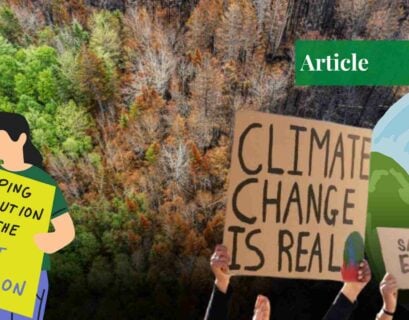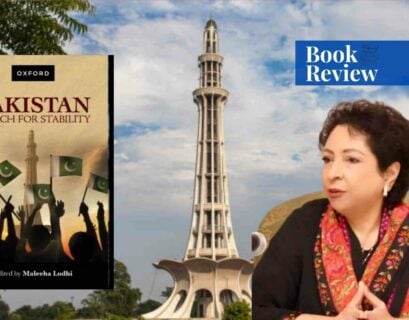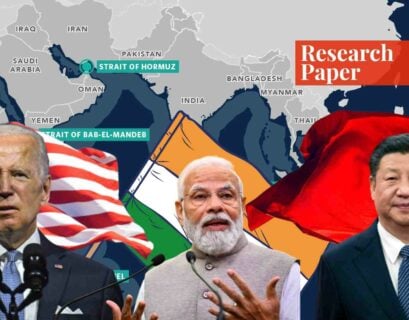Rabia Rasool is pursuing her bachelor's in economics and social sciences from the Lahore School of Economics.
Sri Lanka’s Foreign Reserves
In February, Sri Lanka’s foreign currency reserves were only $2.3 billion, and that’s when the crisis in Sri Lanka became clear. It gets difficult to import goods when a country is low foreign currency reserves. One might think of imported goods as luxury goods, but Sri Lanka has to rely on imported goods for even basic goods such as sugar, cereals, and pharmaceuticals.
Due to now low foreign reserves, inflation has drastically increased in the country. Last month, Sri Lanka witnessed 25% inflation. On top of it, there’s an electrical power crisis as fuel is also imported from other countries. People are getting electricity for only 4 hours a day. It has affected the newspaper and printing industries too. School exams have been postponed due to the lack of sufficient paper.
Sri Lanka has asked China for help even though it already has to make several debt repayments to the latter. Sri Lanka has also been discussing a $2.5 billion credit line with China and other fiscal boosts with the IMF and the World Bank.
Debt-trap Diplomacy
Analysts believe that Chinese debt-trap diplomacy has a huge role in the economic and political turmoil of Sri Lanka. Projects like the belt and road initiative (BRI) and Columbo port city became the major reason for the crumbling economy.
China is notoriously recognized for its debt trap; countries like Madagascar, Maldives, Pakistan, and Tajikistan are already under its spell. In 2017, Sri Lanka’s total debt trap was $64 billion. 95% of the government revenue went to debt repayment and the debt was reduced to $51 billion in 2020.
Effect of Terrorism on Tourism
About 12% of Sri Lanka’s economy relies on tourism. In 2018, Sri Lanka was one of the world’s top destinations for tourism, with 2.3 million foreign tourists visiting the country. In April 2019, however, multiple bombings, now known as the Easter Day bombings, killed 269 people and upended tourism. Eight suicide bombers were responsible for the bombings, and Sri Lanka associated the bomb blast with a local Islamic terrorist group.

As a result, the following month, there was large scale anti-Muslim violence in Sri Lanka. To control this, curfews were imposed and more than 100 troops were deployed in Negombo town. The government blocked Facebook and WhatsApp to stop the spread of inaccurate reports but doing so only heightened religious tensions. After the spread of Covid-19, the tourism sector came to a standstill.
Ineffective Policies
The Sri Lankan president Gotabaya Rajapaksa won the election in 2019, and during his campaign, he promised to revive the economic growth of the country. His policy of cutting down the taxes on the goods so that people would spend more drastically failed.
The government also promised to convert the agriculture sector to 100% organic, but that policy failed, too, as the production decreased due to the lack of use of fertilizers and pesticides. Fertilizers and pesticides were not purchased to clamp down on the imports, but it affected the economy drastically, and the production of crops declined by 30%.
Political Turmoil
Due to the economic downfall, all 26 ministers in the government have submitted their resignation letters to Prime Minister Mahinda Rajapaksa (brother of the president). People are furious and are coming out to break the curfew. Looking at the current crisis in Sri Lanka, no one knows what its destiny holds.
Sri Lankan Prime Minister Rajapaksa addressed the nation to end the protests as that would only further devalue the country’s currency and deprive the nation of valuable dollars. The people of Sri Lanka, however, are reluctant to trust the government to mitigate the damage it has caused to the economy.
Vote of No-confidence
Samagi Jana Balawegaya, the main opposition party of the country, has asked both the President and Prime Minister to resign lest it moves a no-confidence motion. President Rajapaksa constituted an expert panel to help navigate the country out of the ongoing crisis. The panel will have meetings with IMF and other probable lenders to address the 8.6-billion-dollar debt the country faces in a bid to garner some quick revenue.
The economic crisis in Sri Lanka has now rapidly spiralled into a worsening political crisis with politicians simply being unable to come to a common ground on the strategy and the plan for the country. The only hope left is on the people of Sri Lanka who protest for change in their country.
If you want to submit your articles, research papers, and book reviews, please check the Submissions page.
The views and opinions expressed in this article/paper are the author’s own and do not necessarily reflect the editorial position of Paradigm Shift.



















